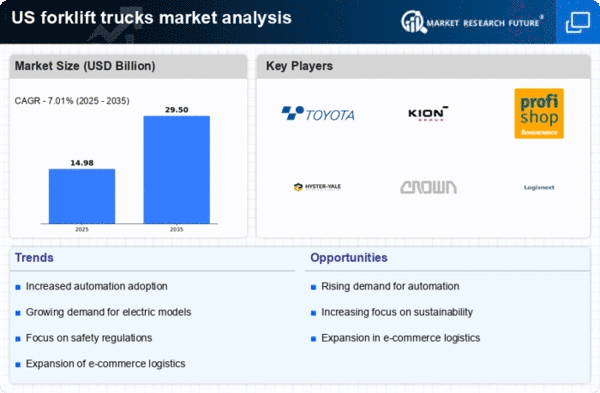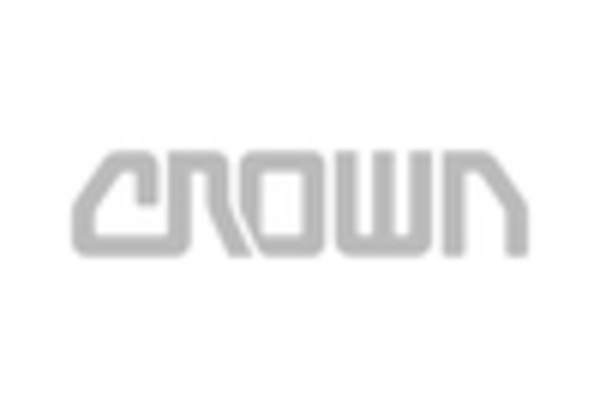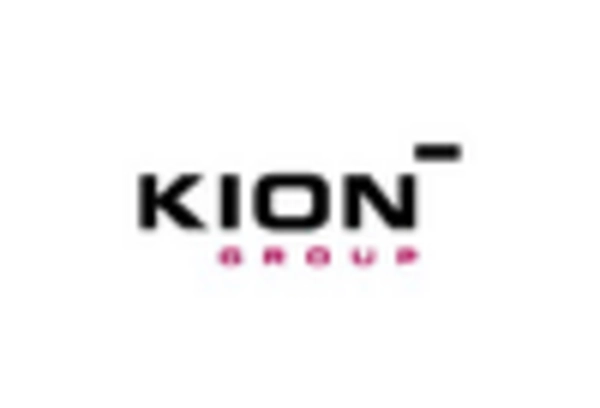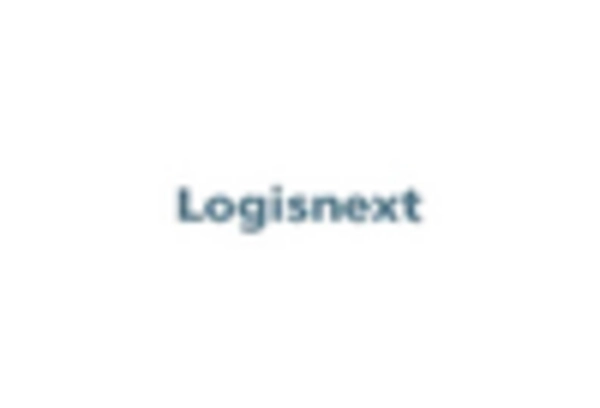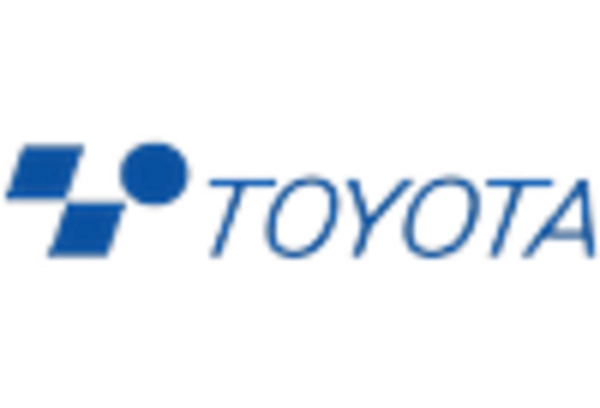Increased Demand for Warehouse Automation
The forklift trucks market is experiencing a notable surge in demand due to the increasing automation of warehouses across the United States. As companies strive to enhance operational efficiency, the integration of automated systems necessitates the use of advanced forklift trucks. According to recent data, the warehouse automation sector is projected to grow at a CAGR of approximately 15% over the next five years. This growth directly influences the forklift trucks market, as automated solutions often require specialized equipment. Furthermore, the shift towards e-commerce has intensified the need for efficient material handling solutions, further driving the demand for forklift trucks. Consequently, manufacturers are focusing on developing innovative models that cater to the specific needs of automated environments, thereby shaping the future landscape of the forklift trucks market.
Expansion of E-commerce and Retail Sectors
The rapid expansion of the e-commerce and retail sectors is significantly impacting the forklift trucks market. As online shopping continues to gain traction, warehouses and distribution centers are under pressure to optimize their operations. This trend has led to an increased need for efficient material handling equipment, including forklift trucks. Recent statistics indicate that e-commerce sales in the US have surged by over 30% in the past year, prompting retailers to invest in advanced logistics solutions. Forklift trucks play a crucial role in streamlining the supply chain, ensuring timely delivery of goods. As a result, manufacturers are likely to focus on producing versatile and high-capacity forklift trucks that can meet the demands of this growing sector, thereby influencing the overall dynamics of the forklift trucks market.
Rising Labor Costs and Workforce Challenges
Rising labor costs and workforce challenges are significantly influencing the forklift trucks market. As companies face increasing expenses related to labor, there is a growing emphasis on automation and mechanization to maintain profitability. The need for efficient material handling solutions, such as forklift trucks, becomes paramount in this context. Recent analyses indicate that labor costs in the US have risen by approximately 10% over the past year, prompting businesses to seek ways to reduce reliance on manual labor. Consequently, the forklift trucks market is likely to see an uptick in demand for models that can operate autonomously or with minimal human intervention. This trend may lead to a shift in product offerings, as manufacturers adapt to the evolving needs of the industry.
Technological Advancements in Forklift Design
Technological advancements are playing a pivotal role in transforming the forklift trucks market. Innovations such as telematics, advanced sensors, and automation are enhancing the functionality and safety of forklift trucks. These technologies enable real-time monitoring of equipment performance, leading to improved maintenance and reduced downtime. Recent reports indicate that the adoption of smart technologies in material handling is expected to increase by 25% in the coming years. As companies seek to optimize their operations, the demand for technologically advanced forklift trucks is likely to rise. Manufacturers are focusing on integrating these technologies into their designs, which not only improves efficiency but also enhances safety standards within the forklift trucks market.
Sustainability Initiatives in Material Handling
Sustainability initiatives are becoming increasingly prominent within the forklift trucks market, as companies seek to reduce their carbon footprint and enhance environmental responsibility. The push for greener operations has led to a growing interest in electric and hybrid forklift trucks, which offer lower emissions compared to traditional internal combustion models. Recent data suggests that the market for electric forklift trucks is expected to grow by approximately 20% over the next five years. This shift towards sustainable practices not only aligns with regulatory requirements but also appeals to environmentally conscious consumers. As businesses prioritize sustainability, manufacturers are likely to innovate and develop more eco-friendly forklift trucks, thereby reshaping the competitive landscape of the forklift trucks market.


